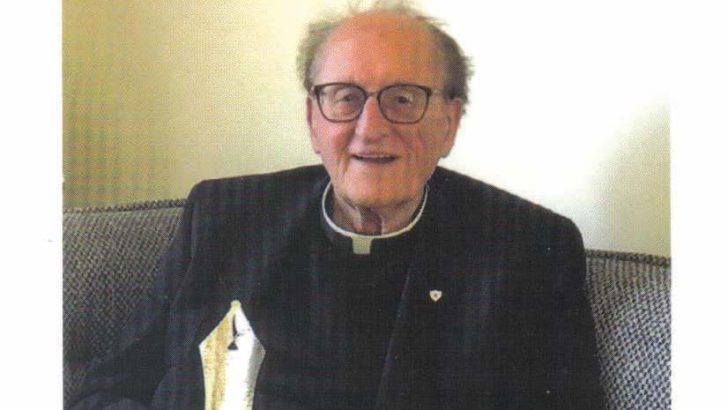Books Reviews 1975-2021: Reviews of works by distinguished biographers, historians, philosophers and writers by J. Anthony Gaughan (Kingdom Books, €24.00/£20.00)
Fr Tony Gaughan, himself the author of many books ranging over philosophy, local and national history, and Irish social life since the middle ages, is one of this paper’s most popular reviewers.
This compilation of his reviews going back over the last half century, gathers articles from some 14 assorted publications from the Evening Herald to The Furrow, by way of Studies and the The Sunday Business Post, an eclectic audience indeed. While the writer’s opinions, like all opinions are endlessly debatable, the book has a much larger perspective. It reveals something of what was passing through the minds of Irish opinion-makers, intellectuals, and a very varied group of writers.
Opening it I was reminded of two century-old books on my shelves: Adventures in Criticism by ‘Q’ (Prof. Arthur Quiller-Couch) from 1898, taken from The Speaker (to which Yeats contributed too); and A London Bookman, by Frank Swinnerton (1928), which assembled some of his contributions over seven years from 1920 to the New York monthly The Bookman.
Remarkable
What these two books provide are remarkable sidelights on literary life over a long quarter century which you will not find in the writings of those academics who cling to the ‘canon’. They range from an attempt at ‘bookstall censorship’ in 1895 by our very own firm of Charles Eason and Son (an attempt to suppress in Ireland Grant Allen’s novel The Woman Who Did) down to the contemporary problem with ‘spurious memoirs’ in 1927 (which might have been plucked from today’s headlines).
Leaving aside the opinions expressed by the reviewer this too is a literary chronicle of immense value covering a period of great social and political change in Ireland when the Irish publishing industry was going through a period of exceptional expansion, but which the perennial under-capitalisation from Irish sources has allowed British and international firms to reap most of the advantage.
But in contrast to say the Ireland of the 1930s and 1940s, the period covered was a period of intellectual ferment, religious and philosophical change, and a still continuing social revolution. This was the outcome largely of a vastly enlarged university graduate cohort in the country from about 1965 onwards, especially of women.
This heady brew is well reflected in Fr Gaughan’s essays, from the actual publisher through the echoes of controversies that involved many people. Fr Gaughan, for instance, is doubtful of ‘revisionism’, and finds novel theories too often to be shallow and unprofitable. Well, these opinions divide the country still and his attitude is one widely shared.
But there is an overall point that should not be overlooked. For many years Fr Gaughan was Irish President of PEN, the international writers group that aims to preserve freedom of expression world-wide as a basic right, and not the gift of a generous government. Ireland was active in this field in developing connections between scattered authors. In general our authors should be glad they live in a country which now has a level of freedom of expression which while not in the very top rank stands internationally at number 11. These reviews reflect indeed a freedom of expression which should never be taken for granted.
Delighted
Many readers, however, will also be delighted to be reminded of, or to learn of for the first time, interesting and important books by excellent writers which have been hurried into oblivion by the practice of modern publishers of giving books only a few months to establish themselves, or producing them in ever smaller decreasing numbers (as low as 300 or 500 copies). I suspect that this compendium of Fr Gaughan’s reviews will make many very thankful indeed for his ever-active pen.


 Peter Costello
Peter Costello Fr. Tony Gaughan
Fr. Tony Gaughan 